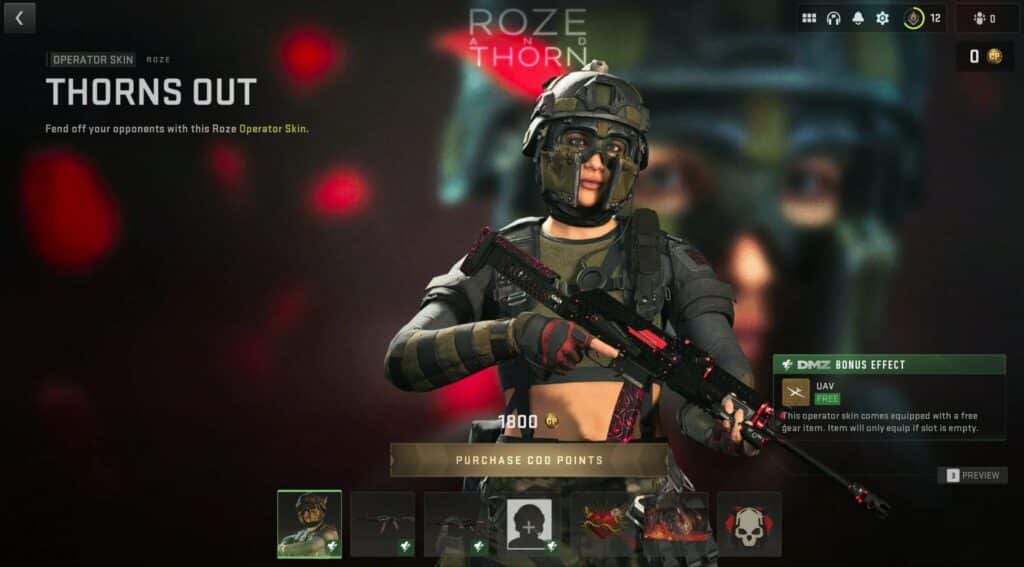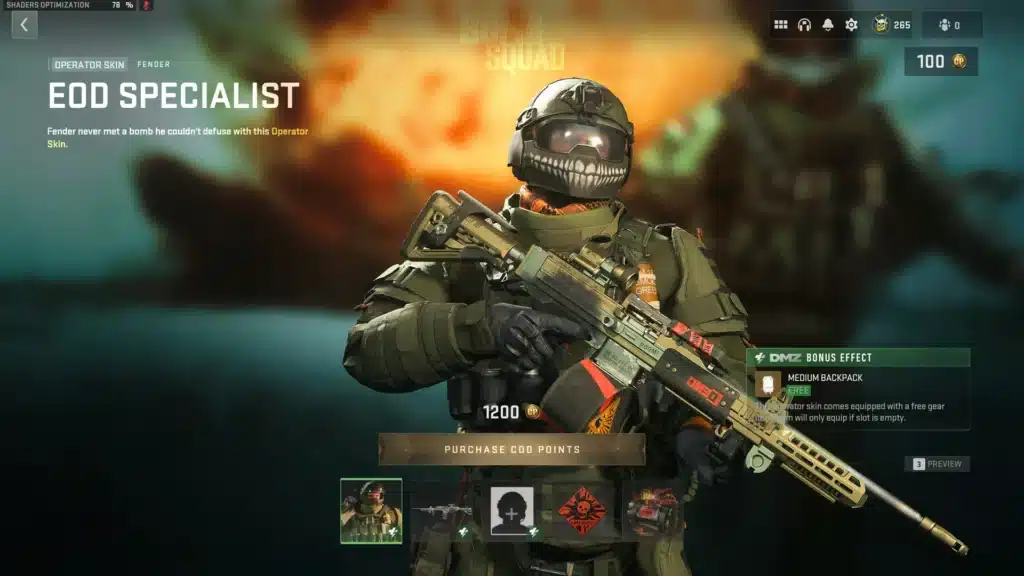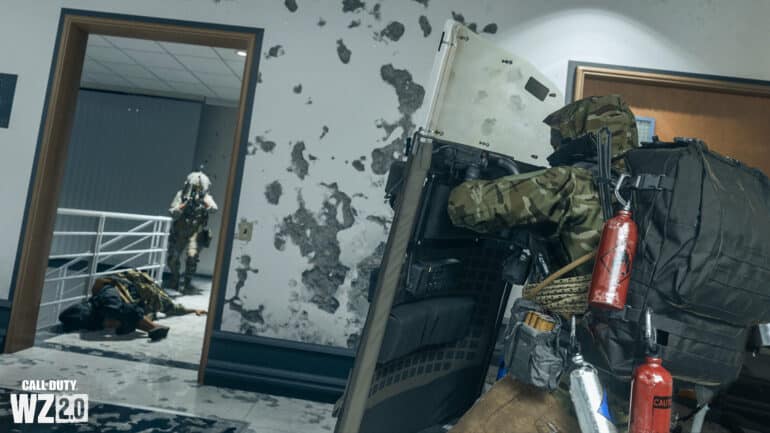The games industry has always had a contentious relationship with microtransactions, but the latest controversy involving Call of Duty: Warzone’s DMZ mode takes it to a new level. The introduction of “DMZ bonus effects” attached to premium cosmetics has caused a stir, with some players accusing the game of becoming pay-to-win.
At the centre of the controversy is the Bomb Squad cosmetic pack, which adds a medium backpack at the start of a DMZ round. This may seem like a minor advantage, but in a game where inventory capacity is critical, it gives paying players an unfair edge. Additionally, leaked information suggests that future premium skins will offer even more significant advantages, such as a free UAV on deployment.
The problem is that DMZ is a game mode that revolves around preserving momentum through consecutive matches. Finding and keeping good loot is essential; dying and losing everything is the great equalizer. However, the introduction of pay-to-win elements means that players who spend money can always be reset to a better place after death than those who don’t.
While it’s true that a player’s arsenal of weaponry and custom weapons designed in the gunsmith does make a difference in who’s more likely to win in a shootout, what makes it fair in DMZ is that players have earned their good gear through playing the game. Introducing permanent bonuses through premium cosmetics undermines this and makes the game feel unbalanced.

Pay-to-Win Mechanics in Video Games
The DMZ community has expressed its displeasure, and it’s not hard to see why. In a game where winning is everything, paying for an advantage feels like cheating. It remains to be seen whether Activision will address these concerns, but for now, the controversy surrounding Call of Duty serves as a reminder of the dangers of pay-to-win mechanics in gaming.
The significance of premium skins in the gaming industry underscores the ongoing issue of pay-to-win mechanics, wherein players can gain advantages by spending real money. This has long been a contentious topic within the gaming community, with many arguing that it creates an unfair playing field that favours those with deeper pockets.
While microtransactions are commonplace in many games, developers must strike a balance between offering cosmetic items that do not affect gameplay and providing items that confer a substantial advantage. When games cross this line and introduce pay-to-win mechanics, it can result in player backlash, which can harm the game’s reputation and longevity.
The impact of this issue goes beyond just Call of Duty: Warzone 2.0, as it raises questions about the ethics of implementing pay-to-win mechanics in games. As more and more games move towards a live-service model, where developers continuously release new content and updates, it’s essential for the gaming industry to consider the impact of these mechanics on player experience and the long-term health of their games.
Will we see more games that introduce pay-to-win mechanics in the future or have we seen enough backlash that developers need to start thinking twice about it?










